“The federal and State governments are in fact but different agents and trustees of the people, constituted with different powers, and designed for different purposes.” James Madison The Federalist, No.46 The American freedoms of religion, speech, press and assembly as protected and practiced were new to the world. Those contributions to the world’s political thought were uniquely American. So it is with […]
First Amendment to the Constitution: Freedom of the Press
Like Freedom of Religion and Freedom of Speech, in the United States the concept of Freedom of the Press as it developed has been uniquely American. Along with free speech for the general population, it is surely the source of what has become known as American Exceptionalism. American Exceptionalism Alexis de Tocqueville originally referred to […]
The First Amendment to the Constitution: Freedom of Speech
The US Constitution’s first ten amendments are called The Bill of Rights. The First Amendment limits the authority of government to enact laws impinging upon the natural rights of the people to practice religion, engage in speech, publish their ideas and assemble together to petition their government. Freedom of religion is the first named freedom. The second named […]
The Origin and Meaning of the Miranda Warnings
The Miranda warnings are part of American criminal justice and American popular culture. Where do they come from? What do they mean? Ernesto Miranda was the name of a 23 year old Mexican immigrant. The United States Supreme Court in 1966 announced a constitutional rule of criminal procedure requiring that police must advise a suspect of several […]
Gideon v. Wainwright, 50 Years Later, Did Clarence Gideon Write His Appeal? Part 2
Clarence Earl Gideon had an eighth grade education and a long criminal history. He had been sentenced to prison for the fifth time. Upon his arrival he began to study law for long hours in the prison library. As the story goes, eventually, with a pencil and paper he scratched out an appeal to the […]
Gideon v. Wainwright, 50 Years Later, Did Clarence Gideon Write His Appeal? Part 1
Thanks to television crime dramas and police shows, everyone is familiar with the following: “You have the right to an attorney. If you cannot afford an attorney, one will be provided for you.” The story of those familiar words started with a Bay Harbor, FL poolroom break-in in 1961. The break-in resulted in the arrest, […]
First Amendment to the Constitution: Freedom of Religion
Freedom of Religion is the first of our natural rights acknowledged in the First Amendment and limits government’s power to establish an official religion or interfere with a citizen’s exercise of religion. This is a recognition of freedom of religion, not freedom from religion. The first ten amendments to the US Constitution are referred to […]
Amendment I to the US Constitution: An Overview
The US Constitution grants enumerated powers to the central government. The drafters believed enumerating the powers limited the government. This was the argument Federalists made based upon an accepted rule for interpreting legal documents: Expressio unius est exclusio alterius (“the express mention of one thing excludes all others”). With that principle in mind, the government could not […]
Bill of Rights of the US Constitution: Promise Made, Promise Kept
The first ten amendments to the US Constitution are known collectively as the Bill of Rights. These amendments limit the power of the federal government. By virtue of the 14th Amendment, most government restrictions in the Bill of Rights apply to the states as well. The Constitution was a grant of power to the central […]
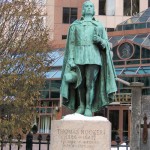
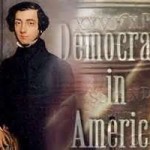

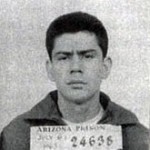

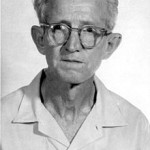


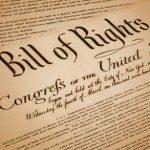






Natural Law and the Legitimate Authority of the United States
Government needs a basis to exercise authority over people. Citizens must accept government authority. A government lacking acceptance of the people over whom it exercises authority will not endure. Such acceptance comes from fear, tradition or philosophy. Dictators obtain authority by instilling fear of disobedience in the populace. A theocracy ordained by God arises from […]